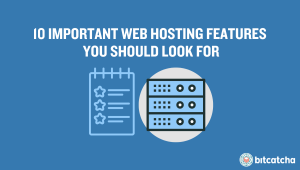Short-Term vs. Long-Term Hosting: Which is Right for Your Website?
Website hosting is essential for any online presence, but choosing between short-term and long-term hosting can impact your website’s stability, budget, and growth potential. Understanding the differences between these options will help you make an informed decision that aligns with your goals and needs. Here’s a comprehensive guide to help you navigate short-term and long-term hosting.

What Is Short-Term Hosting?
Short-term hosting, often referred to as monthly or quarterly hosting, allows website owners to pay for hosting on a shorter contract basis. This option offers flexibility and control, particularly for websites that may not require long-term hosting or have uncertain growth prospects.
Pros of Short-Term Hosting
Flexibility
Short-term hosting allows website owners to adjust or cancel their plan as needed. If you’re experimenting with a new website or project, short-term hosting enables you to scale up or down based on results and website performance.
Lower Initial Costs
Opting for a shorter-term hosting plan means you don’t need to pay a large upfront fee. This is ideal for businesses on tight budgets or startups testing a new online presence.
Testing and Experimentation
Short-term hosting is beneficial for those who want to test website performance, SEO effectiveness, or audience engagement before committing to a long-term plan.
Cons of Short-Term Hosting
Higher Renewal Costs
Many hosting providers offer lower prices for annual or long-term contracts, making short-term hosting more expensive on a month-to-month basis.
Frequent Renewals
With short-term plans, you’ll need to remember to renew regularly, which can lead to lapses in service if you forget or experience billing issues.
Potential for Instability
If you are continuously switching providers or plans, it can affect your website’s performance and uptime, potentially impacting your visitors’ experience.
What Is Long-Term Hosting?
Long-term hosting typically involves contracts that span one to three years. By committing to a longer duration, website owners often enjoy reduced rates and increased stability. This option is popular among businesses with well-established websites or stable growth forecasts.
Pros of Long-Term Hosting
Lower Overall Costs
Long-term hosting plans are generally offered at a discounted rate, resulting in cost savings over time. Many hosting providers offer attractive introductory rates for customers willing to commit to one, two, or even three years.
Increased Stability
With a long-term hosting plan, your website remains on the same server and hosting environment, reducing the chances of downtime or migration-related issues.
Convenience and Reliability
Long-term hosting minimizes the need for frequent renewals. This hands-off approach allows business owners and webmasters to focus on other important aspects of their website.

Cons of Long-Term Hosting
Less Flexibility
Long-term hosting requires a larger upfront commitment, both financially and contractually. If you decide to change hosts, you may face early termination fees or other penalties.
Difficulty in Switching Providers
Switching hosting providers before the end of a long-term contract may involve cancellation fees. If you encounter issues with your provider’s service, this can be a drawback.
Technological Changes
Technology changes rapidly, and if you are locked into a long-term contract, you may miss out on newer, potentially better hosting solutions or improvements offered by competitors.
Comparing Short-Term and Long-Term Hosting for Different Needs
Startups and Small Businesses
For startups and small businesses, flexibility is key. Short-term hosting allows them to scale their hosting needs as their website grows. However, if the business has a stable online presence and is expecting steady traffic growth, a long-term plan could provide cost savings and stability.
Personal and Hobby Websites
For personal websites, blogs, or hobby sites, short-term hosting is usually a better option. These sites often don’t require significant resources, and their owners might not want a long-term financial commitment. However, long-term hosting can be viable for bloggers or personal website owners who plan to maintain their sites long-term and wish to save on hosting costs.
Established Businesses
For established businesses with a consistent online presence and a predictable audience, long-term hosting is typically the best choice. The reduced rates and stability of a long-term plan align well with businesses that rely on their website for steady revenue and customer engagement.
Key Factors to Consider When Choosing Hosting Duration
Choosing the right hosting duration comes down to understanding your goals, budget, and expected website traffic.
1. Budget Constraints
If your budget is limited, short-term hosting can ease the initial financial burden, allowing you to spread costs over a period. On the other hand, if you have a larger budget and are looking to save in the long run, long-term hosting offers more cost-effective rates.
2. Traffic and Performance Requirements
If your website experiences seasonal or fluctuating traffic, short-term hosting may provide the flexibility needed to scale resources. For websites with consistent or growing traffic, long-term hosting provides stability and can handle resource demands more efficiently.
3. Future Growth and Expansion
Consider your website’s future. If you anticipate significant growth, it may be better to opt for short-term hosting initially. Once your website’s needs are better understood, you can transition to a long-term plan with confidence.
4. Level of Commitment to Hosting Provider
For those who prefer flexibility, short-term hosting allows for experimentation with different providers. But if you are confident in your hosting provider’s quality and customer service, a long-term contract can be beneficial.

When to Transition from Short-Term to Long-Term Hosting
Starting with short-term hosting and transitioning to a long-term plan is a strategy many businesses and website owners use. It allows you to test the provider’s service, monitor site performance, and confirm that the hosting meets your needs.
Evaluate Provider Performance
If your host delivers consistent uptime, reliable customer service, and effective website performance, transitioning to a long-term plan can lock in these benefits at a lower cost.
Consider Website Stability
If your website has a steady flow of visitors and requires minimal changes in hosting resources, long-term hosting can reduce the risks associated with frequent renewals and potential downtimes.
Conclusion: Making the Right Choice for Your Website
The choice between short-term and long-term hosting ultimately depends on your website’s needs, your budget, and your future plans. Short-term hosting is ideal for flexibility, testing, and lower upfront costs, while long-term hosting provides cost savings, stability, and convenience.
Whether you’re launching a new website or maintaining an established one, understanding the benefits and limitations of each hosting duration will help you select the plan that best aligns with your online goals. By evaluating your requirements, you can ensure that your website remains secure, accessible, and prepared to meet future growth.





